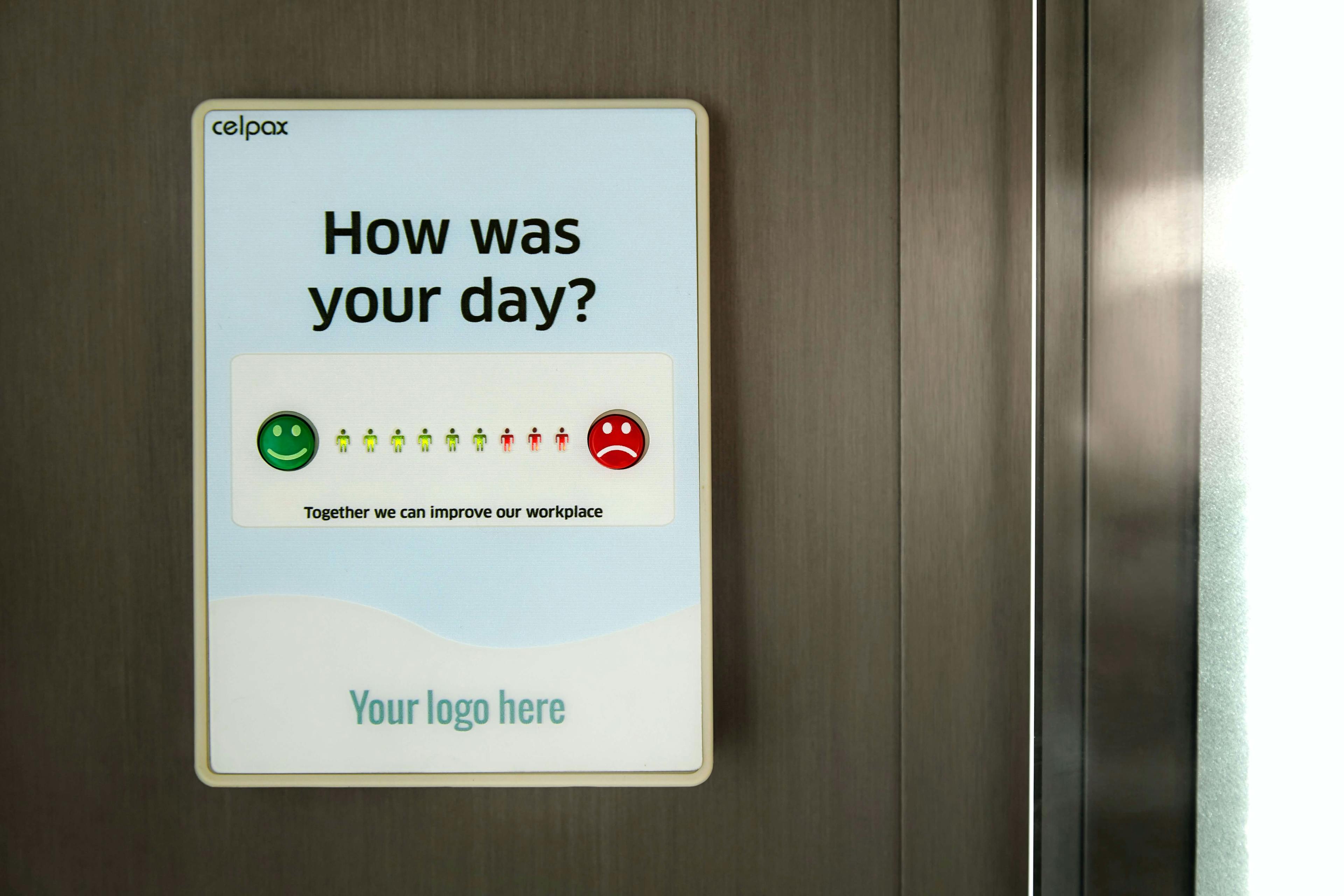Good managers possess a variety of subjective personal or ”soft” skills that go far beyond paper qualifications and practical experience
Managers come in all shapes and sizes - everyone has their own personal interpretation of how to get the best from their team. A good manager is able to inspire and motivate, effectively utilize the resources at their disposal, and fully maximize the potential of the people around them.
But what separates a good manager from an average one?
The truth is, there's no easy answer to this question. Good managers possess a variety of subjective personal or ”soft” skills that go far beyond paper qualifications and practical experience, qualities that allow them to build relationships and trust through the hundreds of interactions and decisions that they make every day.
According to Gallup , only about one in 10 people possess that unique combination of personal qualities and talent to help a team achieve excellence in a way that significantly improves a company's performance. And with companies failing to choose the right candidate for a manager's job a staggering 82% of the time, it's vital that good managers are recognized when they do come along.
In this article, we're going to identify the most important qualities of a good manager and leader, so you know exactly what to look out for. A good manager might not be the most obvious candidate at first - neither the highest-performer nor the loudest or most confident in the room. Instead, keep an eye out for potential leaders of the future who display a rounded combination of the following qualities:
1. Honesty and Transparency
Employees now expect regular, direct feedback to help them grow and develop, so managers who can embrace frank, honest conversations (even if they might be uncomfortable) will be more respected than those who try to avoid or sugarcoat them.
Managers who are open and transparent are seen as authentic - team members who are confident that their leader will treat them as adults and ”tell it as it is” are more likely to be engaged and motivated. More honesty in the workplace means more trust, and according to research by Harvard Business Review, employees in high-trust organizations are ”more productive, have more energy at work, collaborate better with their colleagues, and stay with their employers longer than people working at low-trust companies.”
2. Communication
Effective communication is the lifeblood of any successful company, and good managers play an important role in facilitating this. Managers not only need to have a clear vision of what needs to be done, but they must be able to clearly communicate necessary tasks to individual team members on the basis of priority.
Good managers also encourage employees to provide ideas and feedback of their own, ensuring that contact is regular and comes from both sides. Good communication involves the ability to listen and act upon employee opinions too! Consider implementing one-on-one meetings to help with this, so employees always have an open and safe avenue for communication.
Different people have different ways of expressing themselves, so managers should be comfortable communicating face-to-face, in groups, on video calls, through text, body language, and more. The best managers are able to recognize each individual's preferred manner of communication and get all team members on the same page and working towards a mutual goal.
3. Empathy
Managers need to be keenly aware of any issues or difficulties affecting team members, before they become a real problem. With certain employees not able or willing to admit that they are pushing themselves too hard, are anxious about their performance, or are frustrated with something, a manager's emotional intelligence and ability to empathize can lead to proactive, productive solutions.
Empathy extends to care and understanding for employees who might be struggling. A good manager is mindful about mental health and the risks of burnout and anxiety, and can adapt flexible working hours or other provisions to ease the burden. Managers who take the ”old school” approach of ”toughing it out” and ”manning up” will quickly lose trust and engagement, and ultimately see valuable employees walking out of the door for a more caring environment.
4. Flexibility to Change
Technology and society are constantly evolving, something that good managers embrace, rather than resist. Successful adaptation to new ways of working requires a keen understanding of shifts in attitudes across generations - for example, while older employees might feel more productive in an office environment, younger people might wish to continue working from home in a post-pandemic world. Can this shift be successfully accommodated without affecting performance?
Huge societal and technological upheavals like we are currently experiencing can occur unexpectedly, so a manager's agility to plan ahead and react quickly can make the difference between a company thriving, or barely surviving. Good managers see change as an exciting opportunity for growth and competitiveness, rather than a burden, and build teams that are both adaptable and resilient to new challenges.
5. Decisiveness
Managers have to make difficult decisions regularly - accepting this added responsibility is part of the job. However, some managers struggle to commit to a decision and can be guilty of over-analyzing situations, or becoming paralyzed by fear.
This is where the ability to think clearly under pressure is vital. Good managers need to use logical, structured thinking to weigh up their options quickly, and make their decisions with confidence and the company's best interests at heart. When managers are indecisive and lack trust in their diligence and instincts, the company's processes will move more slowly - it's as simple as that.
6. Confidence
In order to be decisive, good managers need to be confident in their own logic and instincts. Confidence is also key to inspiring teams - a manager that projects assuredness and optimism in the path they have taken is much more likely to have the support of those around them, even those that might've chosen differently if they were in charge.
However, there is a fine line between confidence and arrogance, something that managers with emotional intelligence are clearly able to distinguish. A confident manager should be grounded in a realistic appreciation of their own abilities, and be open to listening and learning from others. Arrogant individuals exaggerate their abilities and feel that they know it all, limiting both themselves and the collaborative skills of their team.
7. Reliability
Employees require a leader that is consistent and stable, someone who is always going to be there for them in times of need. Being reliable builds trust in a team, as employees can approach a manager with the confidence that they will be listened to.
Reliability extends into areas such as commitment to the team and the company also. Managers who view their roles as temporary stepping stones to higher positions will fail to inspire their employees, who won't see the point in working hard for someone whose heart just isn't in it and is clearly not sticking around. Reliable managers commit to their team, their goals, and the company culture and become role models for those around them.
8. Creativity and Vision
A good manager has a clear vision of their aims and goals for the future, and is able to plan long-term with strategic thinking. Of course, the manager's vision should align with that of the company, so it's important that there is an alignment with the values of the individual and the organisation as a whole.
Good managers are also able to think outside of the box to find creative solutions to problems, delivering new ways to boost employee performance and customer satisfaction that can really set the company apart from the competition. Creativity and different approaches should always be nurtured and encouraged, rather than viewed with suspicion.
Creative and visionary managers also empower employees to set their own goals. Encouraging the imagination and creativity of their team is a key attribute of an inspiring manager, who should guide and motivate employees to set and achieve challenging, yet realistic goals. Which brings us to our next point...
9. Recognizing and Rewarding Employee Successes
Employees whose achievements are recognized are naturally happier and more motivated. In fact, according to Gallup, workplace recognition provides ”a sense of accomplishment and makes employees feel valued for their work. Recognition not only boosts individual employee engagement, but it also has been found to increase productivity and loyalty to the company, leading to higher retention.”
Recognition can come in many forms. Either publicly, with awards or certificates given in the company of team members, privately through evaluations and reviews, or with benefits such as promotions or pay rises. Whichever form it takes, employee recognition is a valuable and easily-implemented way of increasing employee engagement, and is a no-brainer for any good manager who cares about their team.
10. Embracing Teamwork
Some managers are driven and single-minded, preferring to either do too many tasks themselves, or micro-manage employees who are trying to get the job done. This shows a lack of trust in a team, and can slow a company down as tasks are not delegated properly. Managers should focus on strategic and organizational tasks that encompass the big picture, and leave shorter-term and administrative tasks to team members who are better suited for the job.
Good managers are able to recognize the value of their own time, prioritize tasks by importance, and trust their employees to do what is expected of them. Managers should encourage teamwork and collaboration wherever possible, building a healthy environment of togetherness and motivation towards a mutual goal, without the toxic and damaging effects of rankings and competitiveness.
Companies that embrace teamwork report increased employee happiness, with teamwork fostering a sense of loyalty, increasing morale, and enabling more creative and innovative ideas.
Wrap up
Finding management candidates that possess all of these qualities of a good manager may not be easy, but natural leaders are out there. While many soft skills are innate (you either have them or you don't) some of these qualities can be learned with time and practice, so there is always space for an average manager to grow into a great one.
Companies that are able to successfully identify that special 10% of candidates who are high performers in management roles will be rewarded with engaged employees and customers, a culture of efficiency and productivity, and higher levels of employee retention!


